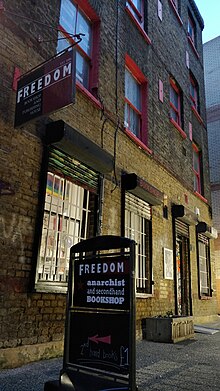Anarchist communism is a political philosophy and anarchist school of thought that advocates communism. It calls for the abolition of private property but retention of personal property and collectively-owned items, goods, and services. It supports social ownership of property and the distribution of resources "From each according to his ability, to each according to his needs".
Freedom is a London-based anarchist website and biannual journal published by Freedom Press which was formerly either a monthly, a fortnightly or a weekly newspaper. It is the world's oldest surviving anarchist publication.

Errico Malatesta was an Italian anarchist propagandist and revolutionary socialist. He edited several radical newspapers and spent much of his life exiled and imprisoned, having been jailed and expelled from Italy, Britain, France, and Switzerland. Originally a supporter of insurrectionary propaganda by deed, Malatesta later advocated for syndicalism. His exiles included five years in Europe and 12 years in Argentina. Malatesta participated in actions including an 1895 Spanish revolt and a Belgian general strike. He toured the United States, giving lectures and founding the influential anarchist journal La Questione Sociale. After World War I, he returned to Italy where his Umanità Nova had some popularity before its closure under the rise of Mussolini.
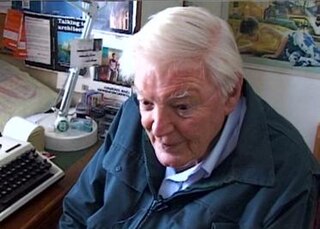
Colin Ward was a British anarchist writer and editor. He has been called "one of the greatest anarchist thinkers of the past half century, and a pioneering social historian."

Albert Isidore Meltzer was an English anarcho-communist activist and writer.
Donald Rooum was an English anarchist cartoonist and writer. He had an extremely long association with the Freedom newspaper in London, to which he regularly submitted his Wildcat comic strips.

Anarchism in the United Kingdom initially developed within the religious dissent movement that began after the Protestant Reformation. Anarchism was first seen among the radical republican elements of the English Civil War and following the Stuart Restoration grew within the fringes of radical Whiggery. The Whig politician Edmund Burke was the first to expound anarchist ideas, which developed as a tendency that influenced the political philosophy of William Godwin, who became the first modern proponent of anarchism with the release of his 1793 book Enquiry Concerning Political Justice.
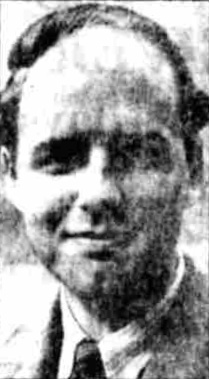
Vernon Richards was an Anglo-Italian anarchist, editor, author, engineer, photographer, and companion of Marie-Louise Berneri.

Marie Louise Berneri was an anarchist activist and author. Born in Italy, she spent much of her life in Spain, France, and England. She was involved with the short-lived publication, Revision, with Luis Mercier Vega and was a member of the group that edited Revolt, War Commentary, and the newspaper Freedom. She was a continuous contributor to Spain and the World. She also wrote a survey of utopias, Journey Through Utopia, first published in 1950 and re-issued in 2020. Neither East Nor West is a selection of her writings (1952).

Anarchy was an anarchist monthly magazine produced in London from March 1961 until December 1970. It was published by Freedom Press and edited by its founder, Colin Ward with cover art on many issues by Rufus Segar. The magazine included articles on anarchism and reflections on current events from an anarchist perspective, e.g. workers control, criminology, squatting.

Anarchism in Australia arrived within a few years of anarchism developing as a distinct tendency in the wake of the 1871 Paris Commune. Although a minor school of thought and politics, composed primarily of campaigners and intellectuals, Australian anarchism has formed a significant current throughout the history and literature of the colonies and nation. Anarchism's influence has been industrial and cultural, though its influence has waned from its high point in the early 20th century where anarchist techniques and ideas deeply influenced the official Australian union movement. In the mid 20th century anarchism's influence was primarily restricted to urban bohemian cultural movements. In the late 20th century and early 21st century Australian anarchism has been an element in Australia's social justice and protest movements.
The Manifesto of the Sixteen, or Proclamation of the Sixteen, was a document drafted in 1916 by eminent anarchists Peter Kropotkin and Jean Grave which advocated an Allied victory over Germany and the Central Powers during the First World War. At the outbreak of the war, Kropotkin and other anarchist supporters of the Allied cause advocated their position in the pages of the Freedom newspaper, provoking sharply critical responses. As the war continued, anarchists across Europe campaigned in anti-war movements and wrote denunciations of the war in pamphlets and statements, including one February 1916 statement signed by prominent anarchists such as Emma Goldman and Rudolf Rocker.
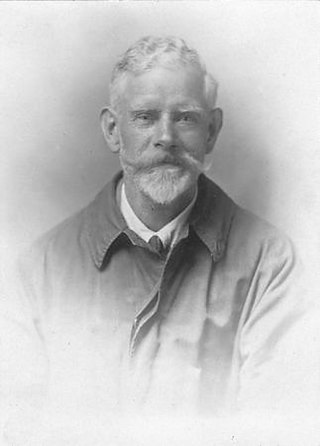
Thomas Henry Keell was an English compositor who edited the anarchist periodical Freedom. In 1907, he attended the International Anarchist Congress of Amsterdam, where he was hailed by Emma Goldman as "one of our most devoted workers on the London Freedom". Keell also contributed to Voice of Labour for many years and was an outspoken opponent of the First World War. He was arrested with his companion Lilian Wolfe during a 1916 raid on the Freedom offices; they were imprisoned and later lived together in Whiteway Colony in Gloucestershire from the 1920s until Keell's death in 1938.
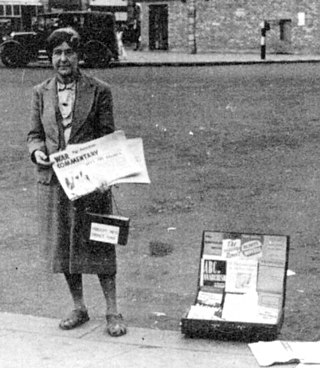
Lilian Gertrude Woolf, better known as Lilian Wolfe, was an English anarchist, pacifist and feminist. She was for most of her life a member of the Freedom Press publishing collective.
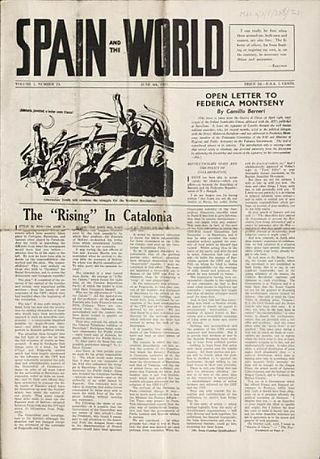
Spain and the World is the name of an anarchist publication initiated in response to the Spanish Civil War and the struggles of the CNT-FAI carrying analysis of events as they unfolded. In Britain, the Freedom Paper had begun to peter-out. Thomas Keell had attempted to close the paper down as a reflection of the poor state of the British anarchist movement. Though there was a brief dispute which resulted in two rival 'Freedoms', both had run their course by the early 1930s. The fortnightly publication, Spain and the World had been started by Francesco Galasso and Vernon Richards in 1936 to compete with News Chronicle and New Statesman who were supportive of Soviet policy in Spain. "After the first issue, Spain and the World became a Freedom Press publication, with Tom Keell and Lilian Wolfe" according to Rooum. The paper would go on to revive the fortunes of the Freedom paper with input from important activists like Marie-Louise Berneri and Frank Leech.

Alfred Marsh was an anarchist-communist and long-time editor and stalwart of the newspaper Freedom.
Wildcat was a monthly anarchist-libertarian newspaper published from London between 1974 and 1975. Wildcat is not connected to the communist newsletter and journal of the same name published in the 1980s and 1990s.

John Christopher Hewetson was a British anarchist physician, writer and newspaper editor. During the Second World War he was an editor of the anarchist newspaper War Commentary, which saw him imprisoned on three occasions. From the 1940s onwards he was active in advocating for freely available contraception and abortions.

War Commentary was a British World War II era anti-militarist anti-war anarchist newspaper published fortnightly in London by Freedom Press from 1939 to 1945. The paper was launched as a successor to Revolt! and Spain and the World and was opposed to World War II along anti-capitalist and anti-state lines.
Tom Brown (1900–1974) was a British anarcho-syndicalist trade unionist, anti-fascist, engineer and writer. Brown contributed articles to papers including War Commentary, Freedom, and Direct Action alongside authoring numerous pamphlets. Brown was known for his compelling public speaking and ability to communicate effectively in everyday terms. He placed a strong emphasis on federated local groups rather than centralism, and on workplace-based revolutionary trade unionism.
